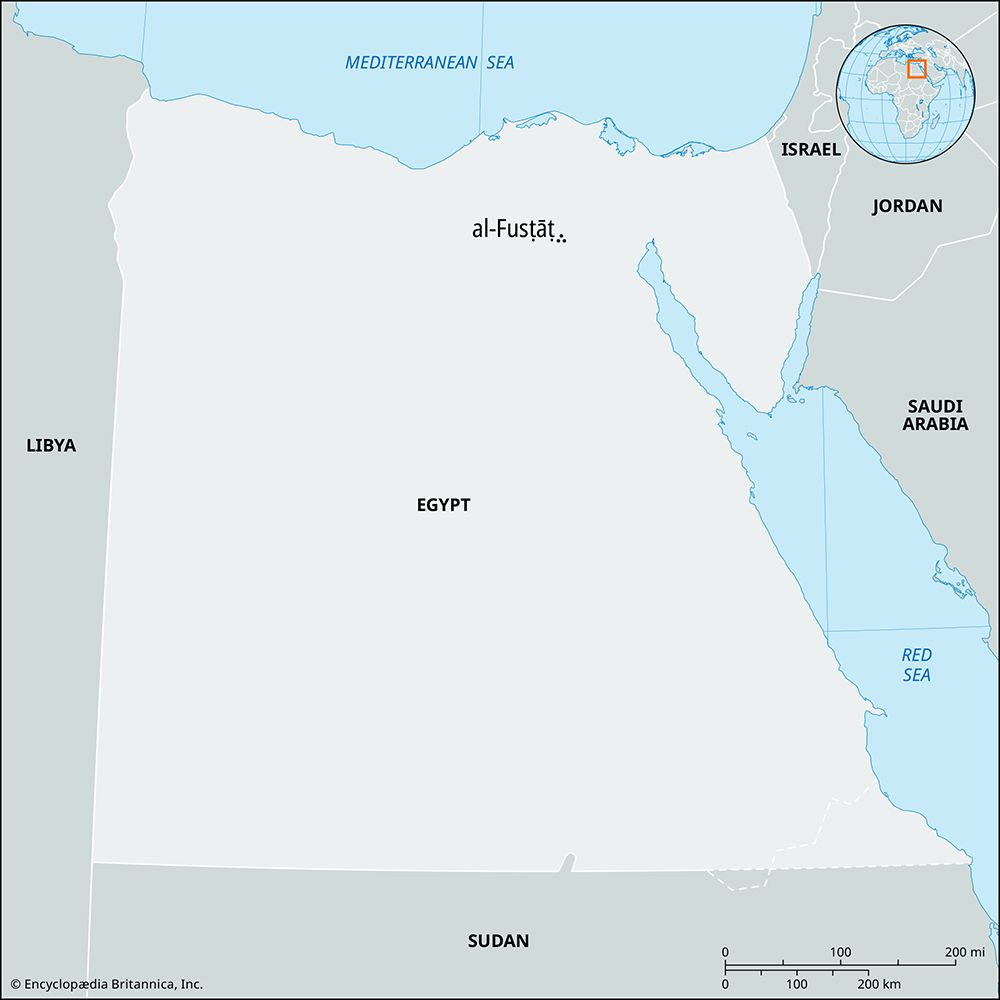al-Fusṭāṭ
al-Fusṭāṭ, capital of the province of Egypt during the Muslim caliphates of the Umayyad and Abbasid and succeeding dynasties, until captured by the Fāṭimid general Jawhar in 969. Founded in 641 by the Muslim conqueror of Egypt, ʿAmr ibn al-ʿĀṣ, on the east bank of the Nile River, south of modern Cairo, al-Fusṭāṭ was the earliest Arab settlement in Egypt and site of the province’s first mosque, Jāmiʿ ʿAmr. It grew into a permanent city out of an Arab camp set up for the siege of the Byzantine fortress of Babylon, but it developed rather chaotically. Around a core of permanent structures—mosques, palaces, and administrative offices—grew up a vast confusion of houses and huts, sited to no plan and periodically ravaged by fire and pestilence. The Abbasid governors thus chose to reside in a northern suburb, al-ʿAskar, while the Ṭūlūnid dynasty built a new quarter, al-Qaṭāʾiʿ, to serve as its capital. The city’s prosperity, derived from a lively commerce and a fine glassware and ceramics industry, facilitated al-Fusṭāṭ’s survival after 969, when nearby Cairo became the capital of Fāṭimid Egypt. In 1168 the town, which had never been fortified, was destroyed by fire to prevent its capture by the Frankish armies of Amalric I. It was rebuilt a few years later by Saladin, who joined it with Cairo. The city’s very name was gradually replaced by that of al-Qāhirah (Cairo). In modern Egypt it constitutes a quarter of Cairo known as Maṣr al-ʿAtīqah (“Old Cairo”).















